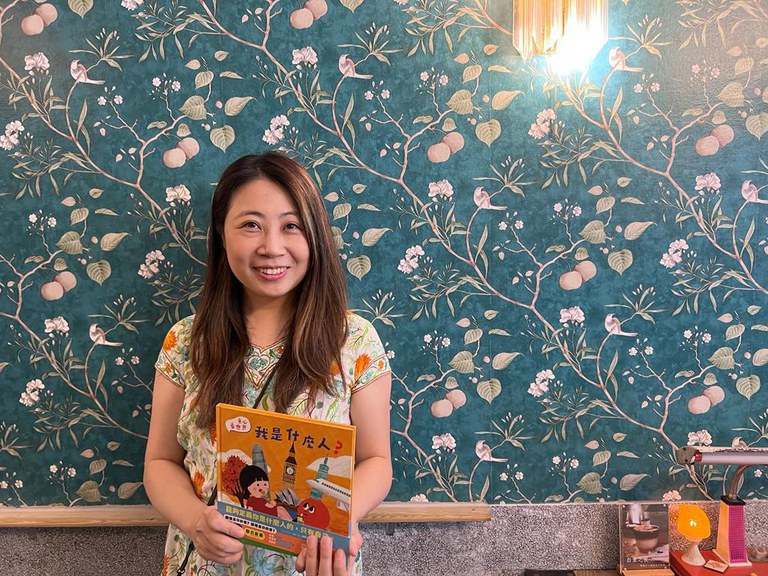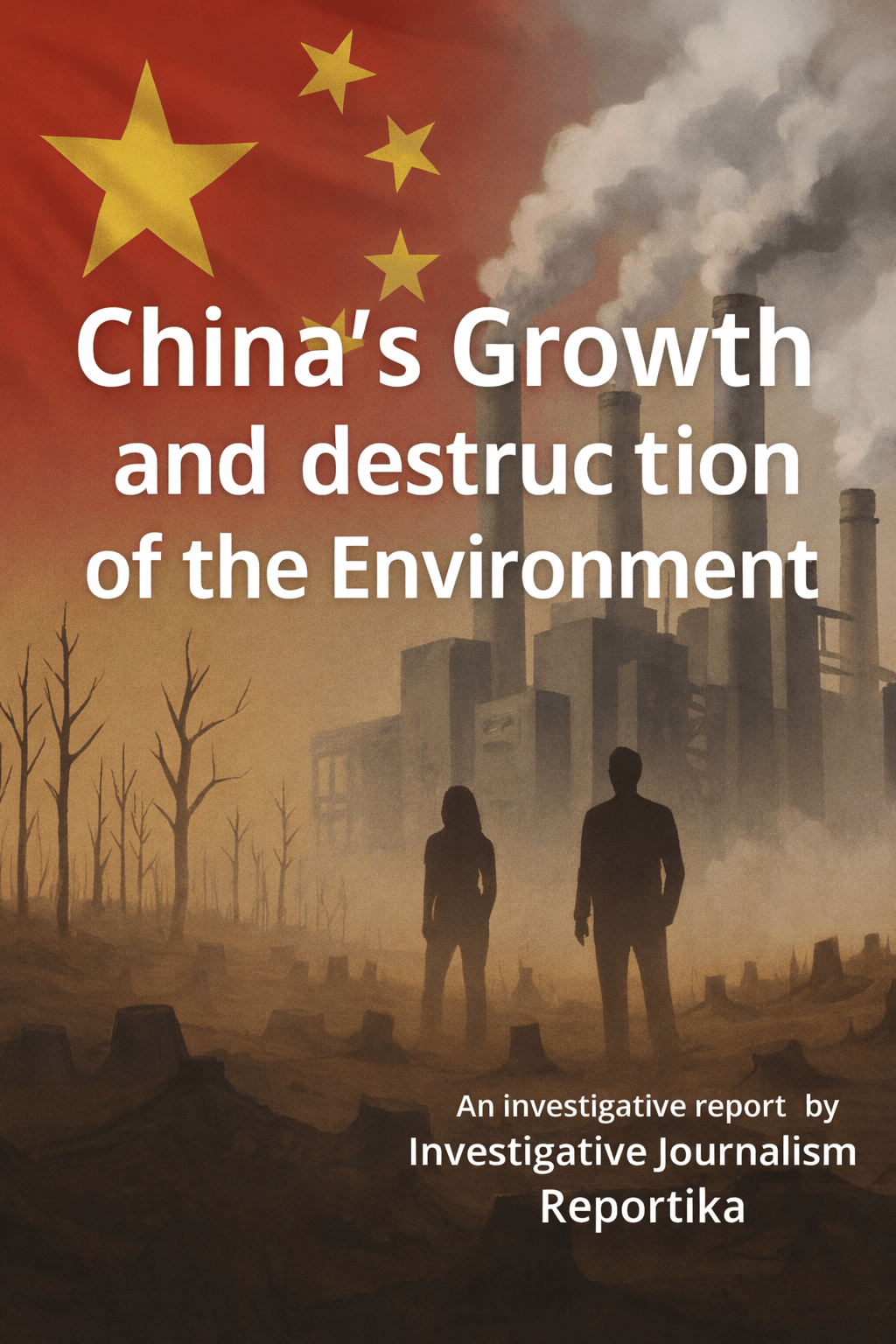As families leave Hong Kong in droves in a bid to remove their kids from an education system that is increasingly steeped in Chinese Communist Party propaganda, they are building new lives in democratic societies like Taiwan and the United Kingdom.
Many middle-class parents, asked why they chose to leave their home amid an ongoing crackdown on public dissent in Hong Kong, say it’s for the kids.
Yet the challenges for children uprooted from friends, school, family and the city they once called home are far from insignificant.
Three years ago, the Cheungs emigrated to Taiwan with their family of five, including Yuet, 13, Guji, 10 and Yiu, 8.
According to a YouTube video made by Yuet at the time, they called out excitedly “We’re going through the gate now!” before giving their relatives a quick hug, and embarking on their new life more than 700 kilometers (400 miles) away.
Around the same time, the Ho family were taking off for the United Kingdom, with 10-year-old Marcus and 9-year-old Max.
“[My dad] just said we were going to the U.K.,” Marcus said in a recent interview with Radio Free Asia. “Actually, I don’t remember the details because we were very young at the time.”
“I never thought much about leaving behind all my classmates and friends.”
The Cheung children said they had some idea of why they were leaving, other than their parents wanting them to get a better education, and that there wasn’t much room for resistance to the idea.
Language problems
Coming from Cantonese-speaking Hong Kong, they also found it hard to communicate when they first got to Taiwan, where Mandarin Chinese is the medium of instruction in schools, and where Taiwanese – mutually unintelligible with Cantonese – is also widely spoken.
“I didn’t understand Mandarin at all, or any other languages,” Guji said. “It was hard for me to communicate.”
All three children were thrown into a system that taught them in a spoken language they didn’t know well, and required them to understand phonetic notation systems they had never been taught, leading them to lose marks in Chinese tests that should otherwise have been a cinch.
“They all know this phonetic system because they learned it in kindergarten,” Yuet complained. “But we were in fifth and sixth grade and we didn’t know it, yet 20 marks out of every 100 were for phonetic spellings, so I got 70.”
“There’s a bit less homework compared with Hong Kong, and the teachers are kinder and a bit less scary when they tell you off,” Guji said. “They’re not as strict.”

The Cheungs also get to spend more time with their parents instead of being left with a domestic helper, as they were in Hong Kong.
In the U.K., Marcus and Max have also had to work hard to overcome the language barrier. Marcus found leaving Hong Kong, where he was on the soccer, badminton and swimming teams and class president, quite a wrench.
But there have been compensations, too. British schools have far less of a hothouse atmosphere than the education system in Hong Kong, and don’t expect kids to study all hours of the day and night just to keep up with requirements.
That leaves more time and energy for doing the things they love, including plenty of energetic outdoor play.
“The pace in school seemed very leisurely,” their father Simon told RFA Cantonese. “But after I looked at what he was doing, it turned out he wasn’t just playing around — he had written two pages.”
“After they caught up in English, communication became easier, and they both like to play football, so it became a lot easier for them to communicate with their friends,” he said.
“I think they’re fairly happy,” he said. “They’re not particularly unhappy.”
Less pressure
Asked if this was an accurate assessment, Marcus said he prefers life in the U.K., because there’s less pressure.
Early years education expert Bonnie, who has also emigrated to Taiwan with her children, said children are adaptable and generally manage to settle, even after such a move.
But they thrive in an atmosphere where they can talk about their feelings, and have a sense that the family is working together to overcome problems.
“First, remember that you’re in this together, and second, give them time and give them space,” she advised. “I don’t mind letting my kids see my weakness, because that’s a very real feeling.”
But ultimately, the parents are the ones responsible for emigration, not the kids, she said.
“Children have to let go of the people and things they love most because of a decision made by their parents,” she said.
Marcus, Max and the Cheung children aren’t alone.
BNO visas
So far 40,000 Hong Kong minors have been approved for the British National Overseas visa program, which offers a pathway to permanent residency and citizenship.

Meanwhile, schools in Taiwan reported 129 new students from Hong Kong in the 2020 academic year, and 174 in the 2021 academic year, compared with less than 100 between 2015 and 2019.
National Taiwan University sociologist Lu Ching-hu said parents who emigrate from Hong Kong were far more likely to oppose the changes in that city than those who stay behind.
“There is a positive relationship between resistance and immigration,” said Lu, who has studied emigrating Hong Kong families. “If you are a parent, the relationship is even stronger.”
U.K.-based Simon said that was a key factor in the Ho family’s decision to leave.
“One of the reasons is that the teaching materials have been changed,” he said. This makes it harder for parents to help kids revise for tests in what has become an unfamiliar and hostile education system.
“There are some topics that you can’t even talk about in general knowledge class any more,” he said. “But they have already been taught a lot of things, so when they ask their teacher, the teacher advises them to go home and ask their mom and dad about the true version of history.”
Protests
The 2019 protest movement, which began as a peaceful mass campaign against plans to allow extradition to mainland China, elicited a more violent backlash from police than the Occupy Central movement for universal suffrage had done in 2014.
The clashes made many in Hong Kong feel that the city was no longer safe, according to Lu.
“They would have gotten that sense of danger and crisis when they took part, so that’s why they started thinking about emigrating when they thought about the future,” Lu said.
Cheung Sang, the father of the three Cheung children, said he would never have left Hong Kong if he hadn’t had children.
“[Beijing] wouldn’t have had much influence on my thoughts, and wouldn’t have been able to brainwash me,” he said.
While the kids are definitely a factor in such decisions, they shouldn’t be made to carry the burden of the move, warned Bonnie.
“Don’t put that huge pressure on the shoulders of these children,” she said.

When children do settle into a new language and environment, parents are faced with a new challenge — whether to preserve their old identities or whether to go with the flow and accept that they will assimilate.
For emigrating Hong Kongers, keeping up their children’s Cantonese, the city’s embattled lingua franca, seems a pretty important way to remind their kids who they are and where they came from.
But there are practical difficulties, not least the number of hours in the day.
The Cheung kids now switch into Mandarin when they’re talking about what happened at school that day, and their word choices and pronunciation of Cantonese are already being affected by the new language that they’re now being immersed in, according to their mother Connie.
Connie told RFA that she gets them to watch YouTube videos in Cantonese, so they don’t forget their mother tongue.
“After a couple of years in the new environment, kids start to ask themselves who they are and where they come from,” Bonnie said.
“I keep talking Cantonese with them … sometimes we look at photos, or I tell them stuff about their childhood to remind them,” she said. “You have to remember that you’re a Hong Konger.”
Translated by Luisetta Mudie. Edited by Malcolm Foster.
Nicknames have been used where requested, to protect the identities of interviewees.



